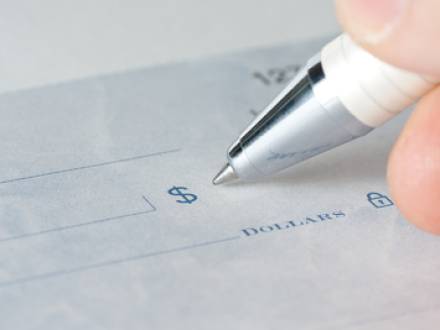Is It a Crime To Write a Check on a Closed Account in Illinois?
 Writing a check on a closed bank account in Illinois can lead to serious legal consequences. When a check is returned unpaid and the account is no longer active, the payee may contact law enforcement. Depending on the circumstances, you could be charged with forgery. The key factor is whether the act was intentional. If you are facing this type of charge, you should speak with a Kane County, IL forgery defense attorney immediately.
Writing a check on a closed bank account in Illinois can lead to serious legal consequences. When a check is returned unpaid and the account is no longer active, the payee may contact law enforcement. Depending on the circumstances, you could be charged with forgery. The key factor is whether the act was intentional. If you are facing this type of charge, you should speak with a Kane County, IL forgery defense attorney immediately.
What Is the Illinois Worthless Check Statute?
Under 720 ILCS 5/17-3, Illinois law makes it a crime to knowingly issue a check when there are not enough funds in the account or when the account is closed. The law requires that written notice be sent to the person who wrote the check within 30 days. If the person does not pay the full amount within 45 days of that notice, they may face criminal charges. The statute is intended to prevent fraud and protect victims from financial loss.
What Are the Consequences for Writing Worthless Checks in Illinois?
Under the Deceptive Practices Act, penalties for writing a bad check vary depending on the amount and whether you have a history of the same crime. A first offense for a check valued at less than $150 is a Class A misdemeanor, while repeated offenses would elevate the charge to a Class 4 felony. For checks valued over $150, the charge could start off as a Class 4 felony. Multiple offenses within a 90-day period, with checks exceeding $150, can result in a combined single felony charge.
What Are the Possible Defenses for Writing a Worthless Check in Illinois?
Several potential defenses may apply depending on the facts of your case. Some common methods used to challenge charges for writing worthless checks include:
-
Lack of intent: If you honestly believed your account was still open and you had enough funds at the time that you wrote the check, you may be able to argue a lack of intent to defraud.
-
Timely restitution: Under 720 ILCS 5/17-3, charges may be avoided if the full amount is paid within 45 days after you receive the notice of dishonor.
-
No proper notice: If you did not receive a written notice within 30 days of the check being returned, the prosecution may not meet all the legal requirements outlined in the statute.
-
Forgery or identity theft: If someone else forged the check or used your account without permission, you may be the victim rather than the person responsible.
-
Duress or coercion: If you were forced to write the check under pressure or threat, that could serve as a valid defense to criminal liability.
An experienced attorney can evaluate the details of your case and help determine which defense best applies. In many situations, proactive repayment or clear communication can help resolve the matter before charges are filed.
Schedule a Free Consultation With an Elgin, IL Forgery Defense Attorney
Allegations involving a bad check or forgery charge can escalate faster than you may expect. If you act quickly and speak with the experienced Kane County, IL forgery and deceptive practice defense lawyer at The Law Office of Brian J. Mirandola, we will fight to protect your rights and explore every available defense. Call 847-488-0889 to schedule a free consultation today.








